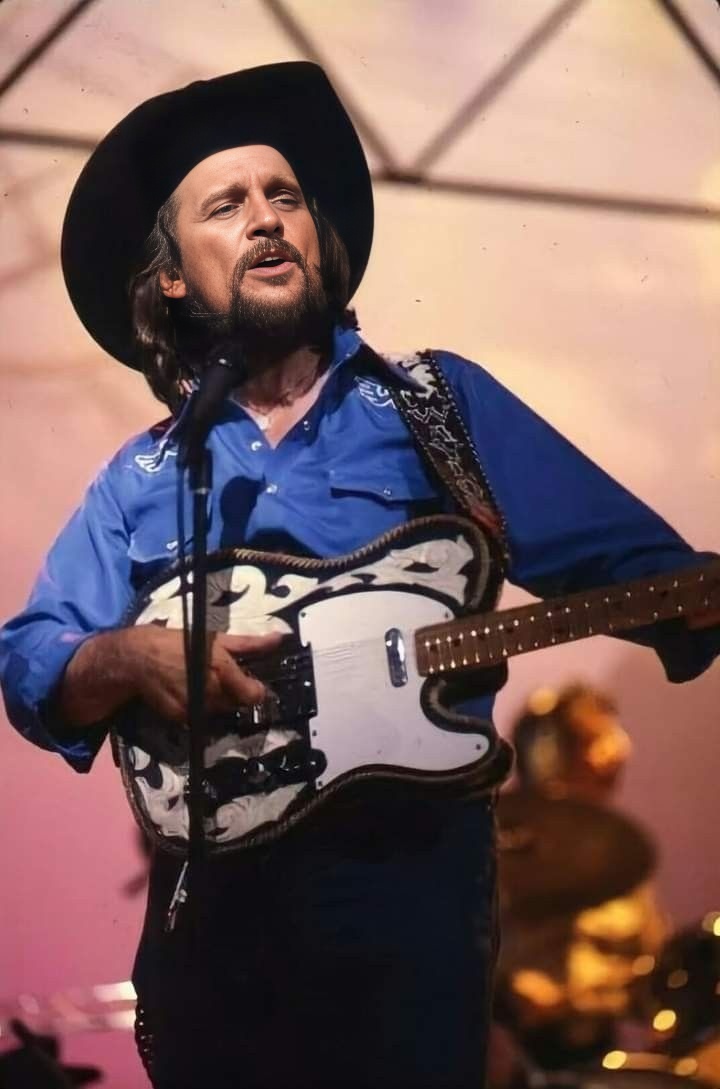
Waylon Jennings, a towering figure in the outlaw country movement, was a rebel who bucked Nashville’s polished sound for a raw, honest, and fiercely independent style. A founding member of the Highwaymen alongside Johnny Cash, Willie Nelson, and Kris Kristofferson, Jennings earned a staggering 14 number-one hits on the Billboard Hot Country Singles chart. Beyond chart success, his impact on the genre is immeasurable, influencing generations of artists who followed in his footsteps. He won multiple CMA and Grammy Awards, solidifying his status as a country music icon.
“Lonesome, On’ry and Mean,” especially captured live in Texas in 1975, exemplifies Jennings’ rebellious spirit and captures a pivotal moment in his career. The song is an anthem of self-reliance and defiance. Its lyrics paint a portrait of a man who lives life on his own terms, rejecting societal expectations and embracing his outsider status. The “lonesome” aspect reflects the isolation that often comes with such independence, while “on’ry” suggests a stubborn refusal to conform. “Mean” is not necessarily malicious, but rather a protective shield against a world that doesn’t understand him.
The live performance adds another layer to the song’s power. You can almost feel the energy of the Texas crowd, a community that embraced Jennings’ authentic sound and rebellious attitude. The audience’s enthusiastic response to “Lonesome, On’ry and Mean” highlights its resonance with those who felt similarly misunderstood and disenfranchised. It became an anthem for a generation seeking authenticity in a landscape often dominated by manufactured image. The raw emotion of the live recording perfectly captures the essence of Jennings’ outlaw spirit and the rebellious message of the song.